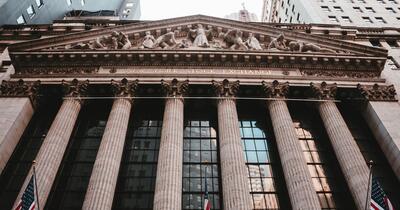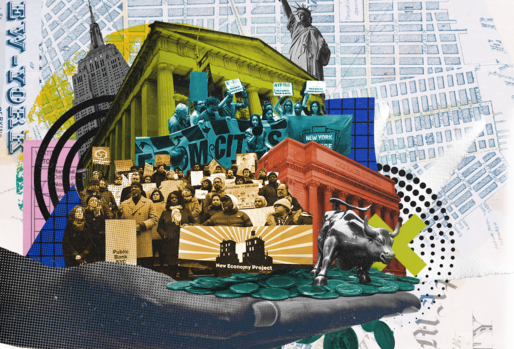
Unfinished Business: Revisiting Dodd-Frank and the Path to Economic Progress
On the anniversary of Dodd-Frank, we're reminded that until we embrace much-needed structural reforms like public banking and stronger regulations, we will continue to see our economy impacted by the whims of banking executives.

Just four months ago, we witnessed three bank collapses in five days, a symptom of corporations gaming political and economic systems and gambling with people's livelihoods in the name of profit. It was an easily avoidable crisis caused by regulatory failures and bipartisan efforts to weaken regulations. This year's anniversary of the Dodd-Frank Wall Street Reform and Consumer Protection Act demonstrates this country's unfinished business of bank regulation.
This year's anniversary of the Dodd-Frank Wall Street Reform and Consumer Protection Act demonstrates this country's unfinished business of bank regulation.
While the recent banking failures did not yield the devastating impacts of the Great Recession of 2008, it's clear that these failures signify something else; an economy consistently held hostage by the whims of banking executives. Dodd-Frank provided critical reforms necessary during the financial crisis fueled by unaccountable big banks, including increased capital requirements. It also created the Consumer Financial Protection Bureau (CFPB), an agency explicitly designed to protect consumers in the financial marketplace, among other reforms. However, the bill lacked the more robust reform necessary to restructure the financial system and hold big banks accountable, such as breaking up these giant corporations– essential to restructure our financial system. The largest banks in the U.S. have only grown since the 2008 financial crisis, and corporations continue to capture the policymaking process through massive lobbying efforts from the largest commercial banks and entities that represent them.
Predatory lending and structural racism embedded into the fabric of our economy meant that the 2008 financial crisis and housing market crash disproportionately impacted Black and brown families who faced higher foreclosure rates, higher interest rates, and longer spells of unemployment. It took a decade for the Black unemployment rate to reach its pre-Recession level. A weakening of Dodd-Frank, combined with frustratingly little progress over the last decade to strengthen the law, and a lack of a viable public banking option remains a consistent threat to economic progress, especially for Black and brown communities' ability to build economic power.
Where Congress has failed, organizers have stepped in and successfully challenged corporations and the politicians they buy.
Where Congress has failed, organizers have stepped in and successfully challenged corporations and the politicians they buy. At Dēmos, we've known that Dodd-Frank was only the beginning of the work necessary to rebuild our regulatory structure in a way that works for working people and families. On today's anniversary, we must continue to urge policymakers to restore the original provisions in Dodd-Frank and work to stop any additional attempts to weaken the law and the CFPB, including by the Supreme Court. But our work must continue. We need structural changes to ensure that banks cannot continue to prey on the marginalized and wreak havoc on our economy overall.
Public banks that serve the interest of the public, not wealthy shareholders, would provide a better, non-predatory option for Black and brown communities, and catalyze a race to the top in banking[.]
Dēmos and our partners in the Public Bank Coalition and the New Economy Project are developing strategies for how public banks can benefit Black and brown communities nationwide. For example, the Public Bank Coalition in New York is fighting to ensure public control over public funds to build community wealth and reduce racial disparities. There are similar efforts afoot across the country. Public banks that serve the interest of the public, not wealthy shareholders, would provide a better, non-predatory option for Black and brown communities, and catalyze a race to the top in banking, making banks compete to see who can win customers, not exploit them. We also remain committed to the movement for stronger banking regulations, a stronger CFPB, and for breaking up corporate power and the monopolies that allow a minority of big banks to control most of our money.
Building economic power for Black and brown people requires more than band-aid fixes. Our financial system is inequitable. It preys on and displaces Black and brown communities and fuels the climate crisis. Policymakers should take direction from the ongoing efforts of movement organizers and advocates across the country to build public banks, deconcentrate corporate power, and create an economy that works for all of us.


